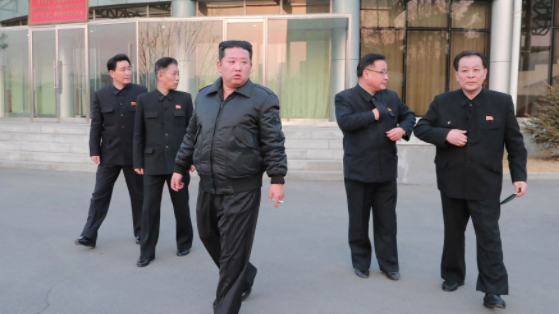Leader of the Democratic People's Republic of Korea (DPRK) Kim Jong Un said the country will launch a number of reconnaissance satellites in coming years to provide real-time information on "hostile" military actions by the United States and its allies, state media reported on Thursday.
It is important to get "real-time information on military actions against it by the aggression troops of the U.S. imperialism and its vassal forces in South Korea, Japan and the Pacific," Kim said while inspecting the country's National Aerospace Development Administration as reported by the official Korean Central News Agency (KCNA).
The leader hopes that military enhancement could "improve the rapid counteraction capability of the armed forces of the state according to the relevant situations."

Democratic People's Republic of Korea (DPRK) leader Kim Jong Un inspects the National Aerospace Development Administration, in Pyongyang, the DPRK, March 10, 2022. /Reuters
Democratic People's Republic of Korea (DPRK) leader Kim Jong Un inspects the National Aerospace Development Administration, in Pyongyang, the DPRK, March 10, 2022. /Reuters
"A lot" of military reconnaissance satellites would be put into sun-synchronous polar orbit in the period of a five-year plan first announced last year, he said, according to KCNA.
Most recently, the DPRK conducted two tests of satellite systems on February 27 and March 5, which drew condemnation from the U.S. military. The Indo-Pacific Command (INDOPACOM) said it had heightened its ballistic missile defense readiness following the launches.
Calling the satellite work "the exercise of the legitimate rights to self-defense," Kim defended the operation as not only about gathering information, but also protecting the country's sovereignty and national interests.
"He stressed that this urgent project for perfecting the country's war preparedness capacity by improving our state's war deterrent is the supreme revolutionary task, a political and military priority task to which our Party and government attach the most importance," KCNA said.
(With input from Reuters)

